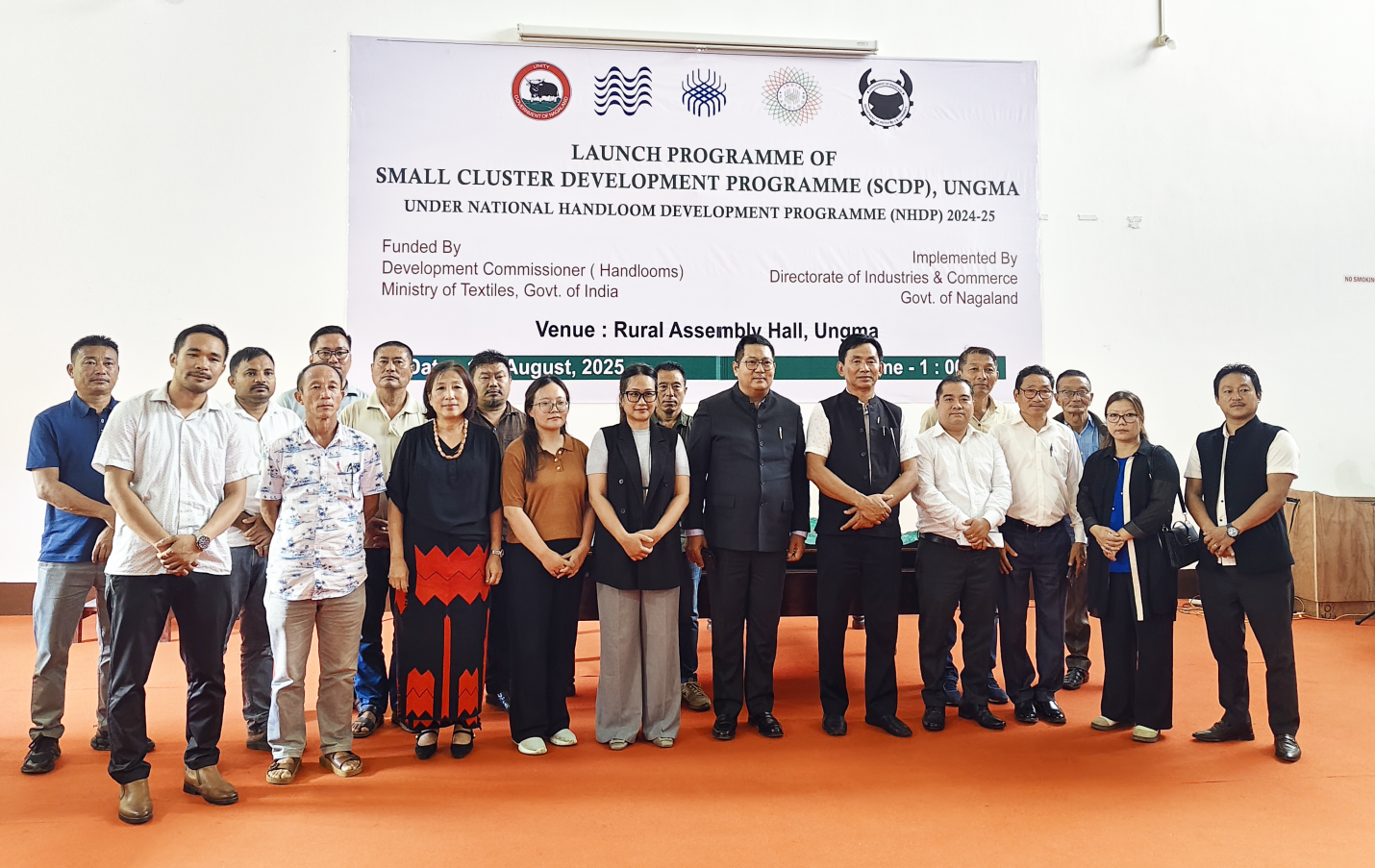Small Cluster Development Programme (SCDP) under the National Handloom Development Programme (NHDP) 2024–25 was launched on August 15 at the Rural Assembly Hall, Ungma village, Mokokchung district.
The event, funded by the Development Commissioner (Handlooms), Ministry of Textiles, Government of
India and implemented by the Directorate of Industries & Commerce, Government of Nagaland, aims to promote and support local handloom clusters for sustainable growth and livelihood generation.
A total of 164 beneficiaries from seven units under the 26 Aonglenden Assembly Constituency—Ungma,
Settsü, Kupza, Dilong, Arkong, Sangtemla, and Marepkong—attended the launch. At the programme, the department distributed loin looms, frame looms, wrapping drums, domestic solar lights, and other weaving materials to the beneficiaries under the scheme.
Speaker of the Nagaland Legislative Assembly, Sharingain Longkumer, in his address, reflected on the initiatives of his late father, I Nungshi Longkumer, who had served as a Cabinet Minister during Dr SC Jamir’s tenure as Chief Minister. He recalled that his father had initiated weaving centre cluster in Ungma during his time as he hold charge of the department of Art and Culture.
Longkumer observed that though Ungma had once been a hub for weaving centres, many of them declined over time due to the advent of new technologies and the migration of innovative human resources to Kohima and Dimapur. He described the SCDP as a continuation of the legacy of forefathers, intended to empower local artisans and revive traditional handloom practices.
Highlighting the linkage with a previous sericulture cluster project in Ungma, he said the SCDP seeks to infuse traditional eri and muga silk rearing with handloom weaving to produce quality fabrics for better market value. He outlined that the sericulture project is targeting the production of four metric tons of eri and muga silk, which would then be processed into yarns for weaving high-value fabrics.
Longkumer emphasized the advantages of traditional weaving practices, calling them “user-friendly and maintenance-friendly,” unlike semi-automatic technologies that require intensive training. He cautioned artisans against registering only for subsidies and urged them to commit to serious craftsmanship, saying that quality production alone would ensure the success of the programme.
Download Nagaland Tribune app on Google Play

He further recalled earlier agricultural initiatives such as ginger, pineapple, and passion fruit farming, noting both their successes and failures, and urged participants to learn from past experiences while using available resources judiciously.
P Tokugha Sema, Director of Industries & Commerce, informed that the SCDP is exclusively for the beneficiaries and praised the skills of Naga artisans. He also urged artisans to register for a PEHCHAN card at the District Industries & Commerce Office, which would enable them to access schemes, incentives, and facilities provided by the government.
The programme was chaired by B Asangla, General Manager, District Industries Centre (DIC),
Mokokchung. Alila, President of Women’s Organisation, Ungma Unit, NDPP, 26 Aonglenden AC, pronounced the invocation, followed by an exhortation from Mayangnungba Jamir, Vice President, NDPP Central.
The vote of thanks was delivered by Nungsangmeren Longkumer, President , 26 Aonglenden AC , NDPP while the benediction was pronounced by Chuba Jamir, Assistant Pastor, Lozutangkang Fellowship, UBC.

